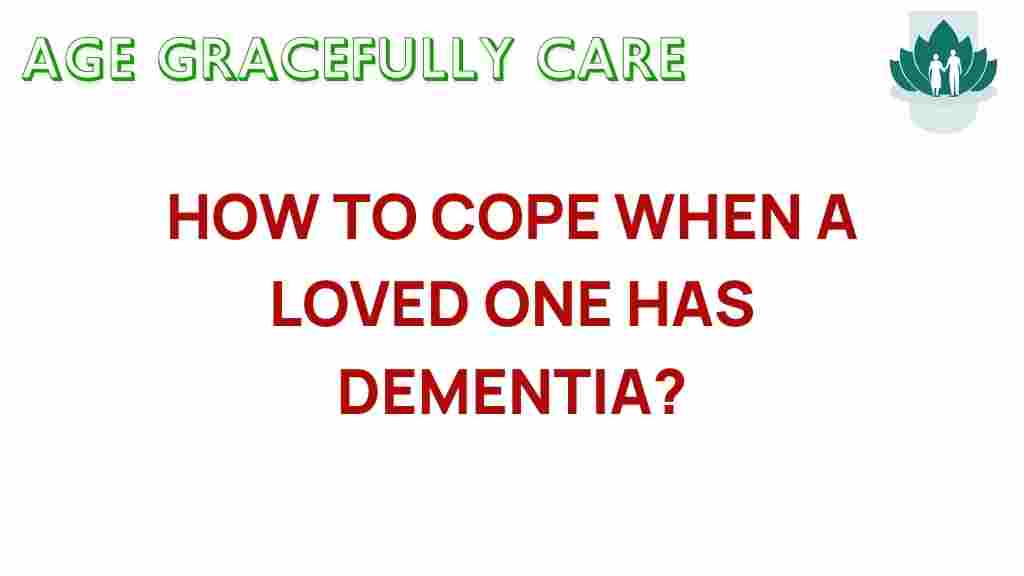Dementia is a complex and often challenging journey, not just for those diagnosed, but also for their families and caregivers. As a loved one begins to navigate the emotional terrain of dementia, it is essential to understand the multifaceted nature of caregiving, emotional support, and the impact on family dynamics. In this article, we will explore effective communication strategies, coping mechanisms, and the importance of support networks, while also emphasizing the necessity of mental health for caregivers. Together, we can develop resilience in the face of aging and the emotional challenges that dementia brings.
Understanding the Emotional Impact of Dementia
The diagnosis of dementia can evoke a whirlwind of emotions. Family members often experience feelings of grief, anger, confusion, and helplessness. It is crucial to acknowledge these emotions and understand that they are a normal part of the caregiving process. Here are some common emotional responses:
- Grief: Mourning the loss of the person as they once were.
- Frustration: Dealing with communication barriers and changes in behavior.
- Guilt: Feeling inadequate in providing care or not being able to do enough.
- Anxiety: Concerns about the future and how to cope with the progression of the disease.
Establishing Open Lines of Communication
Effective communication is vital when caring for someone with dementia. As cognitive abilities decline, traditional communication methods may become less effective. Here are some strategies to enhance communication:
- Maintain Eye Contact: This helps to establish a connection and shows that you are engaged.
- Use Simple Language: Speak clearly and use short sentences to convey your message.
- Be Patient: Give your loved one time to process your words and respond.
- Non-Verbal Cues: Use gestures, facial expressions, and body language to aid understanding.
By focusing on these communication strategies, you can foster a more supportive environment that helps reduce frustration for both the caregiver and the loved one with dementia.
Developing Coping Strategies for Caregivers
Coping with the challenges of caregiving requires resilience and a proactive approach. Here are some effective coping strategies to consider:
- Educate Yourself: Understanding dementia can help you anticipate challenges and respond effectively.
- Set Realistic Goals: Focus on what you can achieve each day rather than overwhelming yourself with long-term expectations.
- Practice Self-Care: Prioritize your own mental health by engaging in activities that rejuvenate you, such as exercise, hobbies, or relaxation techniques.
- Seek Professional Help: If feelings of anxiety or depression become overwhelming, consider speaking with a mental health professional.
Emphasizing the Importance of Support Networks
Building a support network is crucial for both caregivers and individuals with dementia. Surrounding yourself with a community can provide emotional support and practical assistance. Here are some ways to establish a robust support network:
- Join Support Groups: Connecting with others in similar circumstances can offer valuable insights and emotional relief.
- Lean on Family and Friends: Don’t hesitate to ask for help; sharing responsibilities can alleviate stress.
- Utilize Online Resources: Websites and forums can provide tips and a sense of community for caregivers. Consider visiting Alzheimer’s Association for more information.
Managing Family Dynamics in the Face of Dementia
Dementia can significantly impact family dynamics, leading to tension and conflict. It’s essential to address these issues openly and constructively:
- Encourage Open Dialogue: Family meetings can help everyone express concerns and collaborate on caregiving strategies.
- Define Roles: Clearly outline each family member’s responsibilities to avoid misunderstandings.
- Respect Individual Perspectives: Recognize that each family member may cope differently and validate their feelings.
Step-by-Step Process for Caregiving
Here’s a structured approach to caregiving that can help navigate the emotional terrain of dementia:
- Assess Needs: Evaluate the specific needs of your loved one, including medical, emotional, and physical support.
- Develop a Care Plan: Collaborate with healthcare professionals to create a comprehensive care plan that addresses those needs.
- Implement Communication Strategies: Utilize the communication techniques discussed earlier to enhance understanding.
- Monitor Emotional Well-Being: Regularly check in on both your loved one and yourself to gauge emotional health.
- Adjust the Plan as Needed: Be flexible and willing to modify the care plan as your loved one’s condition changes.
Troubleshooting Common Issues
Caregiving can present various challenges. Here are some common problems and solutions:
- Problem: Increased agitation or aggression from the loved one.
- Solution: Identify triggers and modify the environment or routine to minimize stress.
- Problem: Difficulty in managing daily tasks.
- Solution: Break tasks into smaller, manageable steps and involve your loved one as much as possible.
- Problem: Feelings of isolation or burnout for the caregiver.
- Solution: Reach out to support networks, and schedule regular breaks to recharge.
Fostering Resilience in Caregivers
Resilience is essential for caregivers facing the emotional challenges of dementia. Here are some practices that can help cultivate resilience:
- Practice Mindfulness: Engage in mindfulness exercises or meditation to stay grounded.
- Set Boundaries: Know your limits and communicate them to others to protect your mental health.
- Celebrate Small Wins: Acknowledge and appreciate the small successes in caregiving, as they can boost morale.
Conclusion
Navigating the emotional terrain when a loved one has dementia is undoubtedly a complex journey filled with challenges. However, by focusing on effective communication, coping strategies, and building strong support networks, caregivers can enhance their own mental health while providing the necessary care for their loved ones. Remember, it’s okay to seek help and lean on your support networks as you traverse this path. Together, we can foster resilience and make a difference in the lives of those living with dementia and their families.
For more resources on dementia and caregiving strategies, feel free to explore our dedicated resource page.
This article is in the category Care and created by AgeGracefullyCare Team
